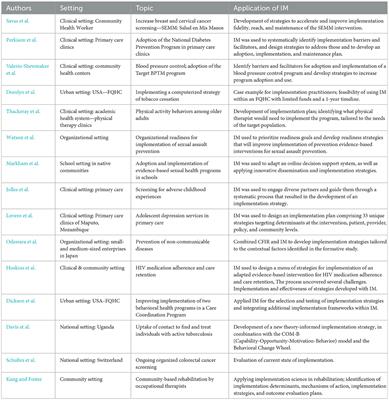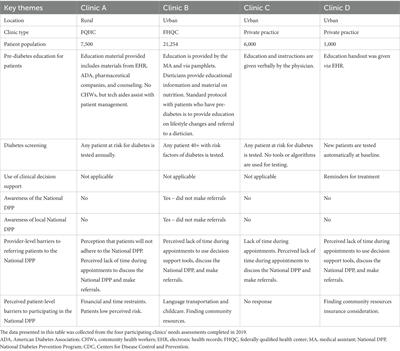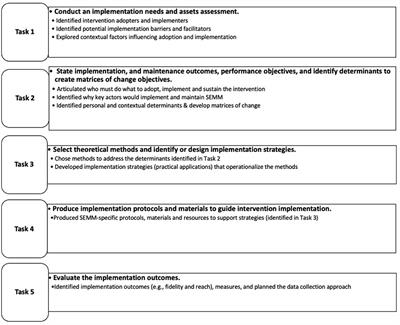EDITORIAL
Published on 17 Oct 2023
Editorial: Implementation Mapping for selecting, adapting and developing implementation strategies

doi 10.3389/fpubh.2023.1288726
- 2,853 views
- 5 citations
20k
Total downloads
67k
Total views and downloads
You will be redirected to our submission process.
EDITORIAL
Published on 17 Oct 2023

ORIGINAL RESEARCH
Published on 26 Apr 2023

ORIGINAL RESEARCH
Published on 15 Mar 2023

ORIGINAL RESEARCH
Published on 24 Nov 2022

METHODS
Published on 31 Oct 2022

ORIGINAL RESEARCH
Published on 06 Oct 2022

BRIEF RESEARCH REPORT
Published on 02 Sep 2022

METHODS
Published on 26 Aug 2022

METHODS
Published on 02 Aug 2022

ORIGINAL RESEARCH
Published on 11 Jul 2022

ORIGINAL RESEARCH
Published on 26 May 2022

ORIGINAL RESEARCH
Published on 12 May 2022

